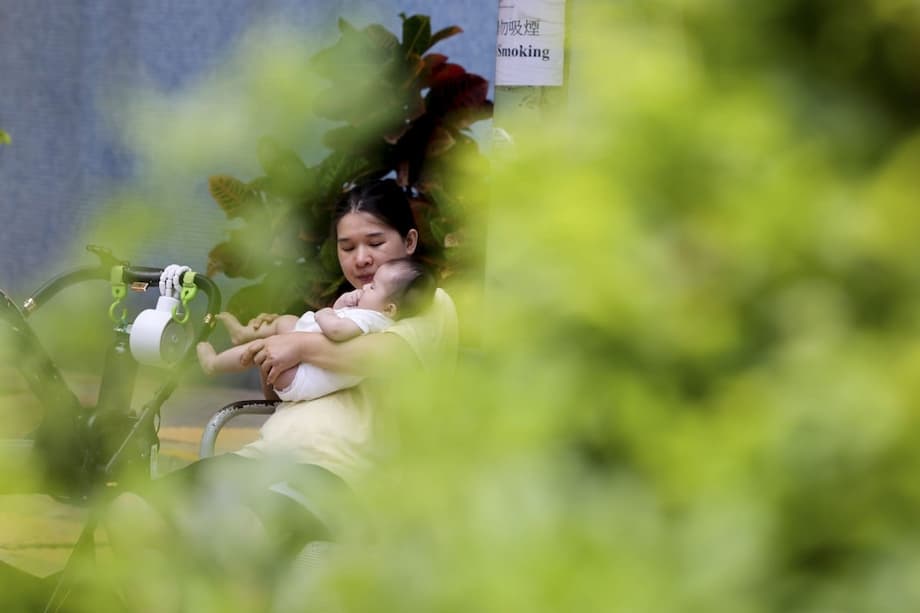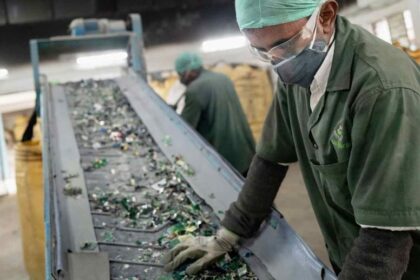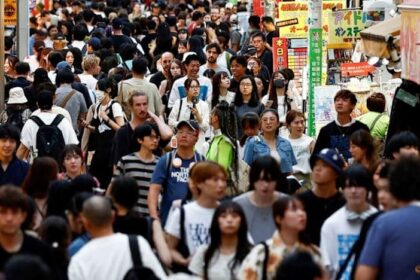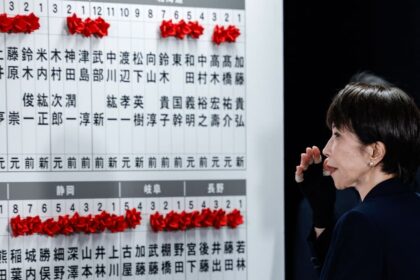Hong Kong’s Baby Bonus Scheme: The Ongoing Debate Over Talent Scheme Inclusion
Hong Kong’s struggle with a declining birth rate has prompted the government to introduce a series of pro-natalist policies, the most prominent being the Newborn Baby Bonus Scheme. Launched in October 2023, the scheme offers a one-off cash allowance of HK$20,000 (about US$2,550) to eligible parents for each baby born in the city. However, as the city continues to grapple with demographic challenges and a shrinking workforce, a heated debate has emerged: should families admitted under Hong Kong’s various talent schemes also be eligible for the baby bonus?
- Hong Kong’s Baby Bonus Scheme: The Ongoing Debate Over Talent Scheme Inclusion
- What Is the Newborn Baby Bonus Scheme?
- Who Is Left Out? The Case for Talent Scheme Families
- Arguments For and Against Expanding the Scheme
- How Effective Are Cash Bonuses in Boosting Birth Rates?
- Beyond Cash: What Other Measures Are Needed?
- Comparing Hong Kong’s Approach to Regional Peers
- Public Sentiment and Political Considerations
- What Happens Next? The Government’s Review and Future Policy Directions
- In Summary
The question is more than a matter of fairness—it touches on Hong Kong’s future economic vitality, its ability to attract and retain skilled professionals, and the broader societal challenges of supporting family formation in a high-cost, high-pressure urban environment.
What Is the Newborn Baby Bonus Scheme?
Announced by Chief Executive John Lee Ka-chiu in his 2023 policy address, the Newborn Baby Bonus Scheme is part of a package of measures designed to boost Hong Kong’s birth rate. The scheme provides a one-off payment of HK$20,000 for each baby born in Hong Kong between October 25, 2023, and October 24, 2026. To qualify, at least one parent must be a permanent resident at the time of application.
As of June 2025, nearly 49,000 applicants had received the bonus, with the government distributing close to HK$979 million in total. The scheme is set to run for three years, during which the government hopes to see a meaningful uptick in the city’s birth rate.
Why Was the Scheme Introduced?
Hong Kong’s fertility rate has been among the lowest in the world. In 2022, the city’s birth rate fell to a record low of 0.9 children per woman, far below the replacement level of 2.1. The number of births dropped from 37,000 in 2021 to 32,500 in 2022, before a modest rebound to 33,200 in 2023 and 36,700 in 2024. This demographic trend threatens the city’s economic growth, strains its public services, and raises concerns about the sustainability of its social welfare system.
Other Asian economies, such as Singapore, Japan, and South Korea, have faced similar challenges and responded with a mix of cash incentives, tax breaks, and family-friendly policies. Yet, as experts point out, these measures have had limited success in reversing fertility declines, often only influencing the timing of childbirth rather than the overall number of children families choose to have.
Who Is Left Out? The Case for Talent Scheme Families
Currently, the baby bonus is only available to families where at least one parent is a permanent resident. This excludes a significant and growing segment of Hong Kong’s population: skilled professionals and their families admitted under various talent schemes, such as the Top Talent Pass Scheme and the Quality Migrant Admission Scheme.
Statistics from the Immigration Department show that in 2023 alone, over 91,000 people arrived in Hong Kong under talent schemes, with similar numbers in 2024 and tens of thousands more in the first half of 2025. Many of these new arrivals are of childbearing age and have expressed interest in starting or expanding their families in Hong Kong.
Lawmaker Jesse Shang Hailong, founding president of the Hong Kong Top Talent Services Association, has been a vocal advocate for including talent scheme families in the baby bonus program. He reports that more than 50 professionals who gave birth after settling in Hong Kong have complained about being excluded from the scheme. According to Shang, “Excluding talent from the scheme is unfair and widening eligibility would encourage them to give birth locally and help the city’s bid to attract top-notch professionals.”
“About 20 per cent of talent scheme families have considered giving birth in Hong Kong, including those who already have children and those who don’t. This is already a significant number.” — Jesse Shang Hailong, Lawmaker and President, Hong Kong Top Talent Services Association
Shang’s group has served around 70,000 people from talent schemes since its establishment in 2023, with the majority being mainland Chinese professionals. The median age is 35, and about 70 per cent already have children.
Arguments For and Against Expanding the Scheme
The debate over whether to include talent scheme families in the baby bonus program is multifaceted, involving economic, social, and political considerations.
Arguments in Favor
- Attracting and Retaining Talent: Expanding the bonus could make Hong Kong more attractive to skilled migrants, who are increasingly sought after by global cities. Financial incentives, even if modest, signal a welcoming environment for families.
- Boosting Birth Rate: Including talent scheme families could encourage more births among a demographic already inclined to have children, helping to counteract the city’s declining fertility rate.
- Fairness and Integration: Many talent scheme families contribute to Hong Kong’s economy and society. Offering them the same incentives as permanent residents could foster a greater sense of belonging and integration.
Arguments Against
- Budgetary Concerns: Some lawmakers, such as Doreen Kong Yuk-foon, argue that the city’s budget deficit makes it unwise to expand the scheme. She notes, “On the one hand, the government has made cuts in various aspects, while on the other, it can be so generous to give HK$20,000 to everyone without telling us how good the outcome of the scheme is.”
- Effectiveness Questioned: Experts like Professor Paul Yip Siu-fai, chair professor in population health at the University of Hong Kong, question whether the bonus is a sufficient incentive. He points out that last year’s slight increase in births may have been influenced by cultural factors, such as the auspicious Year of the Dragon, rather than government policy.
- Long-Term Settlement: Critics worry that children born to talent scheme families may not settle in Hong Kong long-term, reducing the potential benefits to the local population and economy.
How Effective Are Cash Bonuses in Boosting Birth Rates?
Hong Kong is not alone in offering financial incentives to encourage childbirth. Singapore’s Baby Bonus Scheme, for example, provides up to S$10,000 (about HK$58,200) for the third and subsequent children, along with extended parental leave and subsidized childcare. Japan and South Korea have also implemented generous cash bonuses and tax breaks. However, the results have been mixed.
According to a Fortune analysis, such policies often have only a marginal impact on overall fertility rates. High living costs, expensive childcare, and demanding work cultures remain significant deterrents. In Hong Kong, public reaction to the baby bonus has been lukewarm, with many saying the amount is insufficient to offset the real costs of raising a child.
Professor Terence Chong Tai-leung, an economist at the Chinese University of Hong Kong, argues that while the bonus is not a huge amount, it is still worth extending the scheme to talent scheme families as part of a broader strategy to encourage childbearing. He notes, “Many governments around the world have deficits, but many of them still spend a lot of money on policies to encourage childbearing as a shrinking population will lead to a downward trend in the economy and the housing market.”
Eric Fong Wai-ching, chair professor in sociology at HKU, urges the government to conduct research on the scheme’s effectiveness before making changes. He points out that in North America and Europe, attracting immigrants has been an effective way to boost birth rates, as newcomers often intend to have children. However, similar research is lacking in Asian contexts, including Hong Kong.
Beyond Cash: What Other Measures Are Needed?
Experts and lawmakers broadly agree that financial incentives alone are insufficient to reverse Hong Kong’s demographic decline. The government has introduced a range of complementary measures, including:
- Tax Deductions: Eligible residents can now claim up to HK$17,000 in tax deductions for assisted reproductive services, making fertility treatments more accessible.
- Childcare and Education Support: Subsidized child care services, expanded after-school care, and 12 years of free schooling are available. Additional support is provided for kindergartens and families in need.
- Housing Incentives: Families with newborns receive priority in public rental housing and subsidized flats.
- Parental Leave: Hong Kong offers 14 weeks of maternity leave and five days of paternity leave, though this lags behind Singapore’s 16 weeks and two weeks, respectively.
- Flexible Work Arrangements: The Labour Department encourages employers to adopt family-friendly policies, such as flexible hours and remote work options.
Despite these efforts, many Hongkongers cite insufficient childcare options and the high cost of living as major barriers to having more children. Experts suggest that expanding affordable childcare centers, increasing subsidies, and extending parental leave could have a more meaningful impact.
Comparing Hong Kong’s Approach to Regional Peers
Singapore’s experience offers valuable lessons for Hong Kong. In addition to cash bonuses, Singapore provides extensive parental leave, priority housing, and heavily subsidized childcare. These measures are designed to address the practical challenges of raising children in a dense, expensive city. While Singapore’s fertility rate remains low, its comprehensive approach is seen as more effective in supporting families than cash incentives alone.
Academic research also highlights the importance of education and health in mitigating the societal burden of an aging population. A comparative study published in Frontiers in Public Health found that improving education among the working-age population and maintaining elderly health can significantly reduce the impact of population aging. The study recommends optimizing talent admission schemes and enhancing support for families as key strategies.
Public Sentiment and Political Considerations
The debate over the baby bonus scheme has resonated with the public, with social media platforms reflecting a mix of support and skepticism. Some professionals feel unfairly excluded, while others question the effectiveness of cash incentives. Lawmakers are divided, with some advocating for broader inclusion and others urging fiscal caution.
Financial Secretary Paul Chan Mo-po recently announced that Hong Kong is on track to return to an operating account surplus in the 2025-26 financial year, thanks in part to robust stock market performance. This improved fiscal outlook could give the government more flexibility to expand social programs, but the debate over priorities remains intense.
What Happens Next? The Government’s Review and Future Policy Directions
The Office of the Deputy Chief Secretary for Administration is currently reviewing the Newborn Baby Bonus Scheme. Secretary for Labour and Welfare Chris Sun Yuk-han has confirmed that suggestions from the community—including the possible inclusion of talent scheme families—are being considered. The outcome of this review will shape the next phase of Hong Kong’s population policy.
Experts urge the government to base its decisions on robust research and to consider a holistic approach that combines financial incentives with practical support for families. As Hong Kong competes with other global cities for talent and grapples with an aging population, the stakes could not be higher.
In Summary
- Hong Kong’s Newborn Baby Bonus Scheme offers HK$20,000 per child to eligible families, aiming to boost the city’s low birth rate.
- Currently, families under talent admission schemes are excluded, sparking debate over fairness and effectiveness.
- Proponents argue that including talent scheme families would attract and retain skilled professionals and encourage childbirth among new arrivals.
- Critics question the scheme’s impact and raise concerns about budget constraints and long-term settlement of talent scheme families.
- Cash bonuses alone are unlikely to reverse fertility declines; experts call for broader family-friendly policies, including better childcare, housing, and parental leave.
- The government is reviewing the scheme and considering public input, with a decision expected in the coming months.
- Hong Kong’s experience reflects broader regional challenges, and lessons from places like Singapore suggest that comprehensive support is key to supporting families and addressing demographic change.












